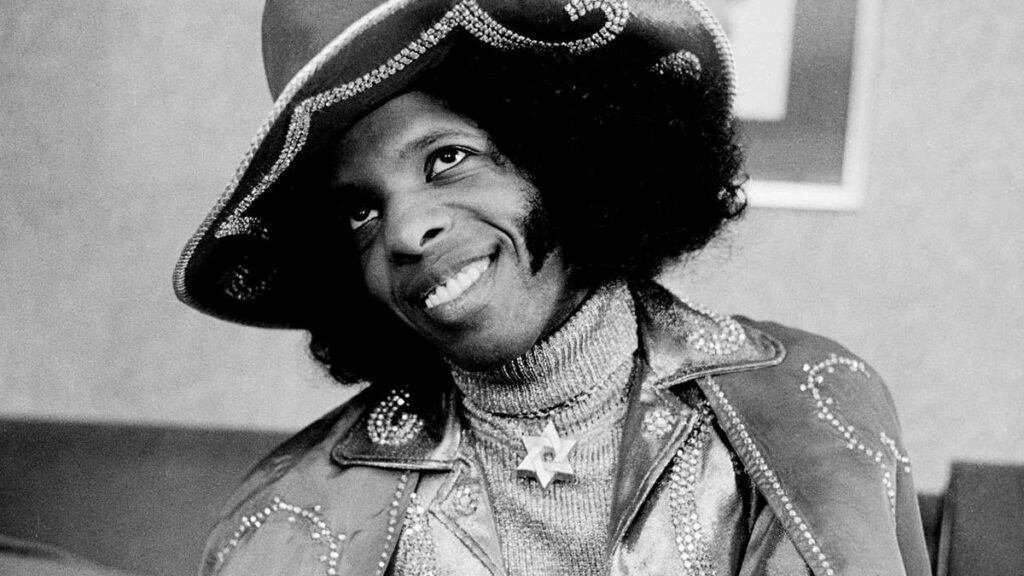Sly Stone, the visionary frontman of Sly and the Family Stone and a pioneering force in funk, soul, and rock music, passed away on June 9, 2025, at the age of 82. His family confirmed that Stone died peacefully in Los Angeles, California, surrounded by his three children, a close friend, and extended family, following a prolonged battle with chronic obstructive pulmonary disease (COPD) and other health issues. As the music world mourns his loss, we celebrate the extraordinary legacy of a man who reshaped American music and broke cultural barriers with his infectious grooves and inclusive spirit.
A Trailblazer in Music and Culture
Born Sylvester Stewart on March 15, 1943, in Denton, Texas, and raised in Vallejo, California, Sly Stone began his musical journey singing in church at age four. His early exposure to gospel laid the foundation for the soulful, uplifting sound that would define his career. Before becoming a global icon, Stone worked as a radio DJ in San Francisco, where he honed his eclectic musical tastes.
In 1966, Stone formed Sly and the Family Stone by merging his band, Sly and the Stoners, with his brother Freddie’s group, Freddie and the Stone Souls. The band, which included siblings Freddie and Rose Stone, Larry Graham, Cynthia Robinson, Jerry Martini, and Gregg Errico, was groundbreaking for its time. As one of the first major integrated bands, featuring Black and white musicians, men and women, Sly and the Family Stone embodied the 1960s ideals of unity and progress. Their music—a vibrant blend of funk, soul, rock, psychedelia, and jazz—defied genre boundaries and set the stage for the funk movement.
Iconic Hits and Cultural Impact
Sly and the Family Stone’s breakthrough came with their 1967 hit “Dance to the Music,” a high-energy anthem that reached the Top 10 in the U.S. and U.K. Their 1969 album Stand! cemented their stardom, selling over three million copies and featuring the chart-topping single “Everyday People.” With its catchy refrain, “different strokes for different folks,” the song became a timeless call for racial harmony and inclusion, resonating deeply during a turbulent era.
The band’s electrifying performance at Woodstock in 1969, highlighted by a frenzied rendition of “I Want to Take You Higher,” solidified their status as cultural icons. Other No. 1 hits, including “Thank You (Falettinme Be Mice Elf Agin)” and “Family Affair,” showcased Stone’s innovative production and Larry Graham’s revolutionary “slap” bass technique, which became a cornerstone of funk music. Songs like “Hot Fun in the Summertime” and “If You Want Me to Stay” further demonstrated their versatility and influence.
Stone’s music didn’t just dominate charts—it inspired generations. Artists like Miles Davis, Prince, Parliament-Funkadelic, and Herbie Hancock drew from his genre-blending sound. Tracks like “Everyday People” have been sampled by hip-hop artists and covered by stars like Cher, while “Thank You” influenced the disco and hip-hop eras. Stone’s socially conscious lyrics and bold integration of diverse musicians made him a symbol of unity and change.
Health Struggles and Later Years
Despite his monumental success, Stone faced personal challenges, including struggles with drug addiction, which impacted the band’s trajectory. Sly and the Family Stone disbanded in the 1980s, and Stone’s public appearances became rare. He was arrested for cocaine possession in 1983 and entered rehab in 1996, eventually quitting drugs in 2019 after multiple hospitalizations. His health declined in recent years, with COPD and other conditions limiting his ability to perform. In February 2025, Questlove, who directed the documentary Sly Lives! (The Burden of Black Genius), noted that Stone’s frail health prevented him from appearing on camera.
Stone made a notable return to the stage at the 2006 Grammy Awards, performing a tribute to Sly and the Family Stone. His influence remained strong, with the band inducted into the Rock & Roll Hall of Fame in 1993. The 2025 documentary Sly Lives!, premiered at Sundance, explored his rise, struggles, and enduring legacy, ensuring his story reached new audiences.
Tributes and Lasting Legacy
Following Stone’s passing, tributes poured in from artists across genres. Questlove called him a “giant” whose changes “will echo forever,” while Fatboy Slim, Chuck D, and Clairo honored his trailblazing contributions. George Clinton, a disciple of Stone’s, credited him with shaping funk’s evolution.
Sly Stone’s legacy is undeniable. He redefined music with his genre-defying sound, broke racial and gender barriers, and gave voice to a generation’s hopes and struggles. Hits like “Everyday People” and “Dance to the Music” remain anthems of unity and joy, while his influence continues to shape funk, soul, hip-hop, and pop. As his family stated, “While we mourn his absence, we take solace in knowing that his extraordinary musical legacy will continue to resonate and inspire for generations to come.”
Rest in beats, Sly Stone. Thank you for letting us be ourselves again.






